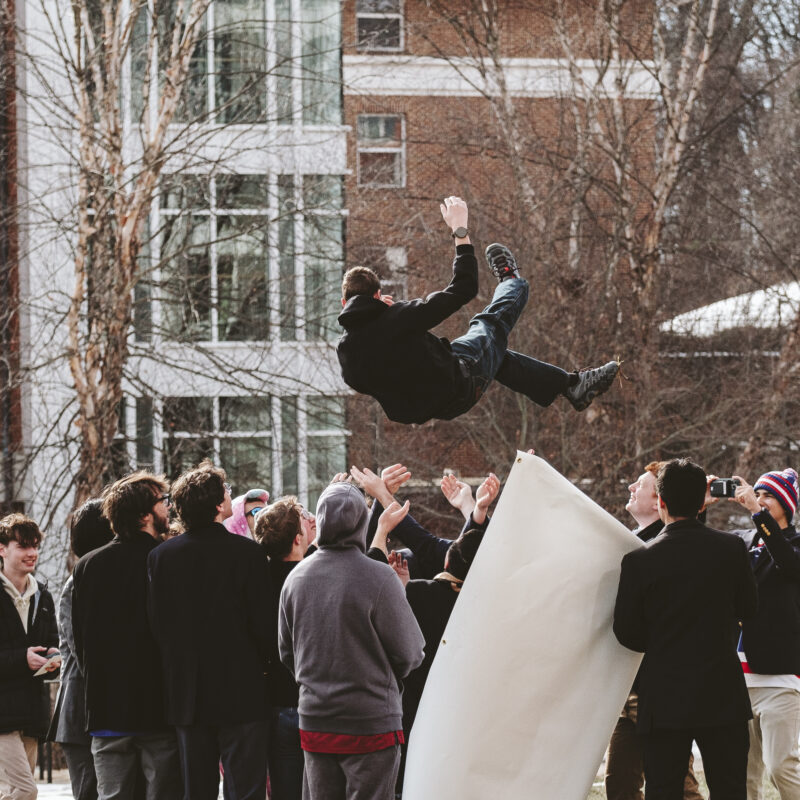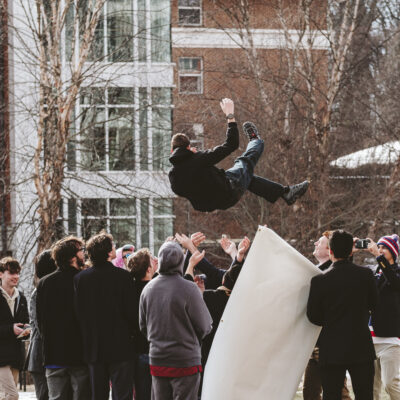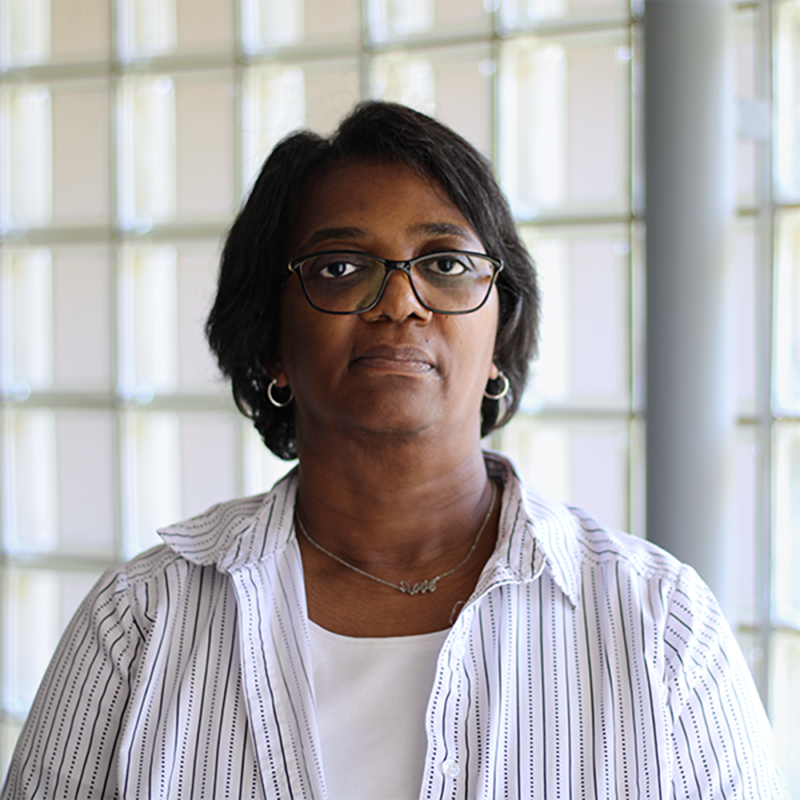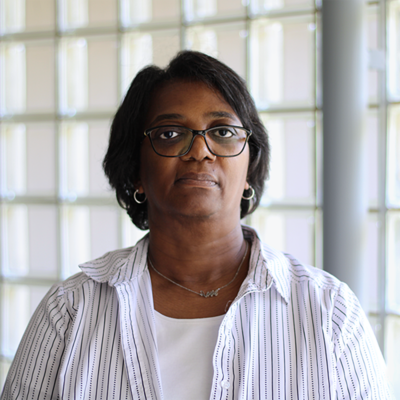Two weeks after his 77th birthday, Bob O’Neil —UVA’s sixth president, former director of the Thomas Jefferson Center for the Protection for Free Expression, and wise old bird—returned to Charlottesville for a gala in his honor. O’Neil, who retired from the Thomas Jefferson Center in May and now lives in Chevy Chase, Maryland, spent the first 90 minutes of his celebration standing 10′ from the front door of UVA Law School’s Caplin Pavilion greeting guests.
“Happy Bar Mitzvah,” one remarked. O’Neil smiled and shook his hand.
Decades after he made Charlottesville a megaphone for issues of free speech and expression, O’Neil spent Saturday evening listening to prominent wordsmiths—from former U.S. Representative Tom Perriello and former poet laureate Rita Dove to governors Gerald Baliles and Linwood Holton—who were intent on singing his praises.
|
Bob O’Neil, UVA’s sixth president, resigned from that position in 1990 to take a position as the Thomas Jefferson Center’s first executive director. In 2001, when City Council debated the center’s Free Speech Monument on the Downtown Mall, O’Neil maintained that Charlottesville’s center was the best site for the structure. |
Holton, who called for the end of Massive Resistance in Virginia during his time as governor, praised O’Neil’s integrity, character and fairness. During dinner, Baliles remarked that O’Neil once responded to a report from the Governor’s Council on Higher Education: “Governor, if I agreed with you, then we’d both be wrong.”
Like parents who watch for, then shape, their child’s first words, O’Neil has helped to define the way Charlottesville’s voice falls on the national ear.
“Bob gave us intellectual stature and credibility at the Thomas Jefferson Center for its first 20 years,” said Bruce Sanford, chair of the center’s Board of Trustees, to C-VILLE. Sanford called the Thomas Jefferson Center a precursor to projects such as Yale Law School’s planned Floyd Abrams Institute for Freedom of Expression. “He established the premier First Amendment center at any law school.”
Asked to comment on O’Neil’s departure and legacy, UVA President Teresa Sullivan deferred to her husband, UVA Law Professor Douglas Laycock. Author of a series of texts based on religious freedom, Laycock called O’Neil a “great First Amendment scholar, with a lot of valuable work in [areas of] academic freedom.”
Dahlia Lithwick, a senior editor for online news magazine Slate.com and a center trustee, told C-VILLE that O’Neil had assembled one of a very few bipartisan boards of its stature in the country.
“It’s a testament to his ability to talk about First Amendment issues across the partisan divide,” said Lithwick.
State Delegate David Toscano served on the Charlottesville City Council that approved the Free Speech Wall, arguably the Thomas Jefferson Center’s most prominent public contribution to Charlottesville. O’Neil, said Toscano, “brought a sort of intellectual firepower to Constitutional law.”
The Free Speech Wall did not receive unanimous support from Council when it was approved in 2001. “Looking back, I had some issues about where it would actually be located,” said Toscano. The chalkboard was constructed directly opposite City Hall’s Main Street entrance, its messages facing council and city staff when they left work.
Other councilors voiced concerns over potentially offensive or harmful content. At the time, O’Neil responded that the monument was placed firmly in Charlottesville’s public eye—a move that the Boston Globe called “gutsy, scary and fascinating.”
Ultimately, O’Neil told Council that “no immunity is provided by writing on the chalkboard.” Each layer of chalk was a message to be debated, criticized, seconded or erased.
“I think it’s become a real draw,” said Toscano on Saturday night. “Sometimes, it’s a little messy. But it gets people talking.”
O’Neil was also praised as a foundational figure for the Virginia Coalition for Open Government, which co-hosted the gala and works to expand access to government documents and meetings. Board member John Edwards, editor of the Smithfield Times, said Virginia’s Freedom of Information Act “needed advocates outside the newsroom.”
“We needed a champion, and we found it in Bob O’Neil,” said Edwards.
But we’re still in need of champions. Which made the first words from Josh Wheeler, the new Executive Director of the Thomas Jefferson Center and Bob O’Neil’s right-hand man, particularly resonant.
“Good evening, ladies and gentlemen,” said Wheeler. “I’m Bob O’Neil.” O’Neil smiled, a quiet recognition that the idea of keeping him around might not be half-bad.






